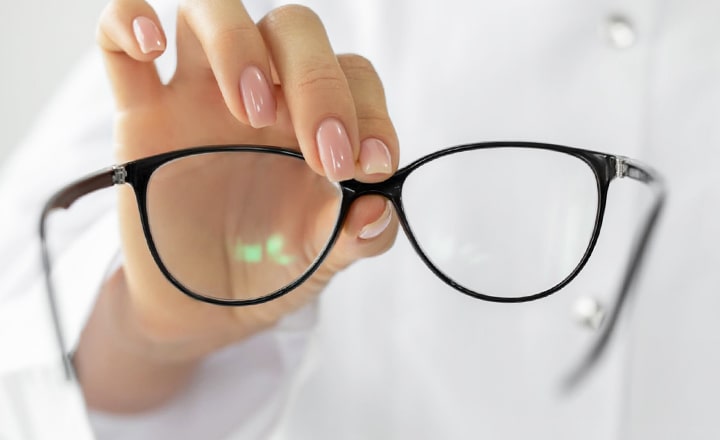Search based on the size of your current glasses
- Shop by shape
- Shop by colour
- Shop by size


Medical jargon and the profession itself are often very complex and difficult to understand for individuals who are not in the eye health field. When it comes to needing an eye exam, you will want to make sure you know which eye specialist to seek professional help from. There are many different kinds of eyecare professionals. The most common are optician, optometrist and ophthalmologist. But what is the difference between these three types of professionals? In this article, we will enlighten you on their varying responsibilities and also the role they play in providing you with eye care.
We have highlighted below the main differences between these three key professions in vision care. Find out more about what each of their roles entail.
Despite common belief, opticians are not doctors. They do not carry out eye tests, write ocular prescriptions, or perform surgical operations. The role of an optician is to verify and fit glasses and contact lenses based on a prescription provided by another professional, either an optometrist or ophthalmologist. They check lens prescriptions, measure your face for glasses and adjust your frames. They are even able to make repairs to your glasses. An optician is also very skilled at suggesting which frames and lenses you should go for based on your personal needs and requirements. Very often they will have completed a diploma course, or a degree of some kind.
The main difference between an optometrist and optician is that an optometrist is qualified to carry out an examination of your eyes. They can also check on eye conditions like short-sightedness and far-sightedness, detect any eye problems or injuries and monitor eye conditions related to diabetes or high blood pressure. They can prescribe corrective lenses and also treat conditions like dry eyes and glaucoma. Very often they will have a Bachelor of Science Degree in Optometry (BSc) or a Master’s Degree of Science in Optometry (MSc). They normally work in opticians on the high street but some also work in hospitals or local clinics.
The key difference between an optometrist and ophthalmologist is their level of qualifications and knowledge. An optometrist is not a medical doctor but is often colloquially referred to as an ‘eye doctor’ by some people. Optometry is a specialised health care profession that involves examination of the eye and detecting abnormalities and diseases. Optometrists frequently work in collaboration with ophthalmologists to help examine and manage eye diseases.
Meanwhile, an ophthalmologist is a medical doctor and the only type of eyecare professional with a medical degree. They are the most qualified of eye health professionals and are capable of diagnosing and treating a multitude of eye diseases, beyond the everyday eye and vision care that is normally provided by an optometrist.
Ophthalmology is a clinical and surgical profession within the field of medicine that focuses on diagnosing and treating all eye diseases and injuries. Ophthalmologists have advanced training in medicine and surgical procedures and are qualified to diagnose and provide prescriptions for treatments. They are also able to perform eye surgery and can often identify other health issues that are not directly linked to eyesight, which they will then refer to other doctors for treatment. Typically, they work in eye hospitals. Some ophthalmologists also conduct scientific research into the causes and treatments for specific eye conditions and vision problems.


Depending on your eye problems, a doctor or optician will be able to help. You can get recommendations from your friends and family. Speak to your doctor about any concerns you might have. Before seeking help from either an optician, optometrist, or ophthalmologist, make sure you check their professional skills and qualifications. Read patient testimonies for more information about the quality of service they provide. Also, make sure you take into account our advice about what services each health professional is qualified to offer you.